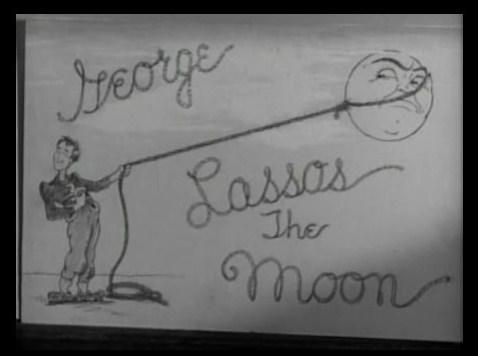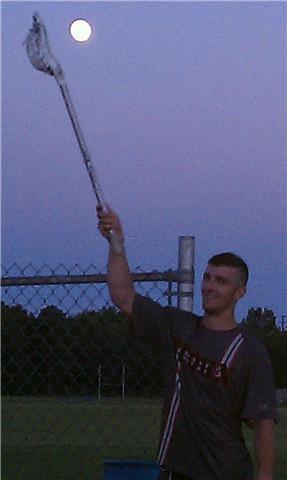Fun 'n Stuff
Subscribe to our Newsletter





Alleged Lacrosse Cheating Caught on Tape
The two players do a move known as the "hidden ball trick." The players huddle, then break, leaving the opposing team guessing who has the ball.
The videotape showed in this case, one of the players hid the ball in his glove, then pulled it out when no one was looking and scored a goal.
"What they did was innappropriate and unethical," said Rob Gormley, a youth lacrosse coach who said he knows both players. "It's bad not just to themselves, but Arapahoe High School and the lacrosse community in general."
The Arapahoe Athletic Director released a statement saying the school doesn't condone behavior outside the rules. The school will be following up with the players.
CHSAA said sanctions are pending the investigation.


* * * * * *
Can you guess which one is which?




No one will ever accuse me of being unbiased when the topic of Coach Knight is brought up. What I’ve learned from Knight about not only basketball and competition, but about character and integrity, I could talk about for hours. But as a coach and player, there are no words in my opinion, that say more about being able to compete in any team sport, better than these eight words.
A few years back, I read a comprehensive study on the effects of positive reinforcement in the educational system, and how this approach ultimately was found essentially to be a failure. Our society has become one where children, and young men and women, are brought up to “feel good” about themselves. We were told we needed to build their self-esteem, to nurture and promote individual expression. All the while, demand, discipline, correction, and accountability were being replaced with choice, intemperance, defiance, and justification. And this has extended into the sports world as well.
From grade school on into high school, you often here an abundance of “Good job”, “Nice try”, and “That’s okay”, at the expense of “You can do better”, “That’s not good enough”, and “Your effort is poor”. Consequently, too many young athletes of today don’t develop the necessary tools in handling adversity or how to take and use criticism to better themselves in their selected sports. Instead, when adversity or confrontation does appear, they will tend to feel personally attacked or they become unable to thrive when they find themselves in a difficult situation. A vast perspective and philosophy among many parents and coaches today goes something like this: “Okay, Billy, you’ve missed on twelve shot attempts, but when you see that next one, don’t hesitate, you go ahead and shoot it.” I’ve personally always preferred this approach: “Now Billy, you’ve taken two bad shots already. If you take one more, I’m going to strangle you first, and then I’m going to bench you.”
In team sports, less talented teams are able to compete with better skilled opponents by one reason more than any other: eliminating mistakes. A prime example of this is the New England Patriots first Super Bowl victory over the Los Angeles Rams in 2002. In just about every statistical category, the Rams shelled the Patriots. But the highly favored Rams committed three costly turnovers while the Pats committed none. A deliberate and mistake-free game by the Patriots proved that talent alone doesn’t decide wins and losses. Mental discipline, smart play, and execution does.
In general terms, there are two types of mistakes in lacrosse and any other sport: physical mistakes and mental mistakes. Taking an open shot at the cage and missing is a physical mistake. Taking a shot from 15 yards out instead of passing to an open teammate five yards away from the goal is a mental mistake. The former will happen from time to time. Skill can be a variable from moment to moment, player to player, game to game. This happens to even the best of players from time to time. Even Michael Jordan had a few nights when he couldn’t hit the ocean from a boat. The latter is unacceptable, however, and should be looked upon as so. A mental mistake has absolutely nothing to do with physical skill. It has everything to do with playing smart, playing within your capabilities, and playing unselfishly. Lacrosse skill, like in many other sports, can be improved upon. However, a plateau is usually reached at some point in a player’s career, and then any improvement in individual play depends mostly on the mental part of that player’s game. The mental part of sport never plateaus, thus improvement in play is always possible. This component is what separates the very best players from the rest--those that excel at using both their physical and their mental skill. It is also where players and teams can compete against a more talented opponent, one who relies solely or mostly on athletic talent.
One doesn’t have to look much further than the great state of
There’s nobody better than Brady at maintaining concentration during a long drive, or from becoming frazzled in a hurry-up offense. Bird’s anticipation of passes, cuts, and rebounding position was second to no one. Williams’ recognition of pitches and what was being thrown to him allowed him to almost never swing at a bad pitch. All three, with their fully-fueled CAR, helped drive their respective teams toward that all-important end all: execution (CARE). Moreover, the best players, like these three, are not the ones who just only put up big numbers, but are those who also have the capability to make all the other players around them better. That is where the mental game can make a player better, or no better at all.
Too often, lacrosse players rate their own game performance based on what they did: “I scored three goals”… “I made 15 saves”… “I had three takeaways”. Instead, in order not only to improve your game, but to improve your understanding of the game, I believe rating how well you played is most indicative by what you didn’t do: “I didn’t get stripped” … “I didn’t force a bad pass” … “I didn’t get beat on defense”… “I didn’t take a bad shot”.














